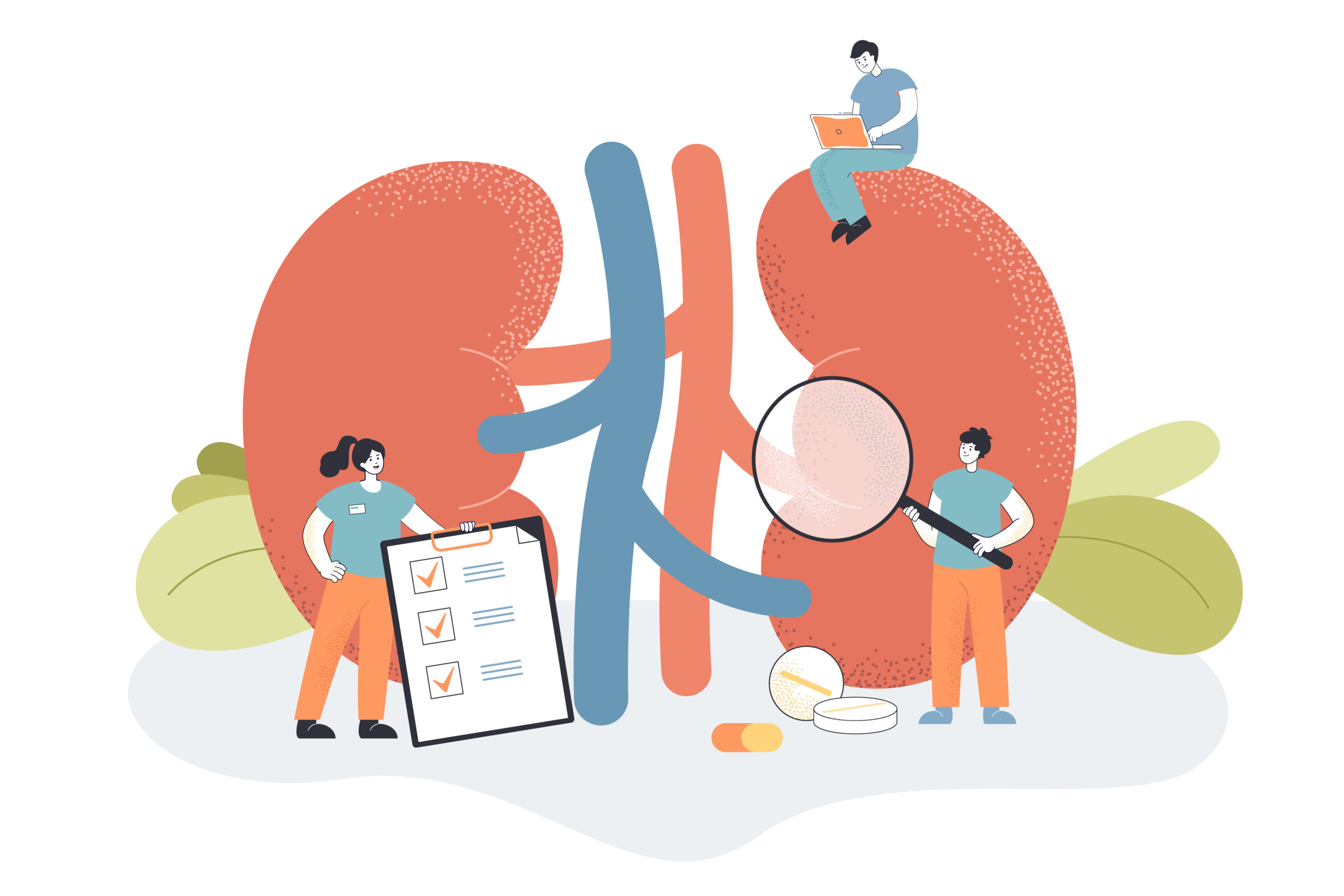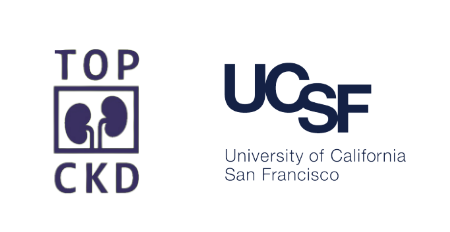Chronic Kidney Disease Treatment Study
This study builds on research showing that a medication called pirfenidone may help prevent kidney scaring (fibrosis) in people with chronic kidney disease (CKD). Help further kidney disease research and join our compensated study today!

Fast Facts
diagnosed with chronic kidney disease
21 years or older
Compensation up to $900
conducted at the university of california san francisco
Study Background
Chronic kidney disease (CKD) is a major health condition characterized by a gradual loss of kidney function. There is no cure for CKD, but some treatments can help preserve kidney function for longer.
The purpose of this study is to test the effectiveness of a medication called pirfenidone to treat CKD. Pirfenidone is an FDA-approved drug for another indication. We believe that this medication may help kidney disease by reducing scarring in the kidney.
If you decide to participate in this research study, you will take the active medication during a period of 3-5 weeks. At the end of the period you will be randomized to either placebo or active medication, and your dose of placebo or active medication increased. Randomization is like a flip of a coin. Neither you nor the study team will have a choice as to which group you will be in.
Your participation in this study might contribute to the development of new treatments for CKD in the future. Join today!

Study Background
Chronic kidney disease (CKD) is a major health condition characterized by a gradual loss of kidney function. There is no cure for CKD, but some treatments can help preserve kidney function for longer.
The purpose of this study is to test the effectiveness of a medication called pirfenidone to treat CKD. Pirfenidone is an FDA-approved drug for another application. We believe that this medication may help kidney disease by reducing scarring in the kidney.
If you decide to participate in this research study, you will take the active medication during a period of 3-5 weeks. At the end of the period you will be randomized to either placebo or active medication, and your dose of placebo or active medication increased. Randomization is like a flip of a coin. Neither you nor the study team will have a choice as to which group you will be in.
Your participation in this study might contribute to the development of new treatments for CKD in the future. Join today!
Additional Information

You may qualify for this study if you meet the following criteria:
- 21 years or older
- Diagnosed with chronic kidney disease
- No plans to move from the Bay Area in the next year
- No current use of tobacco, including cigarettes, cigars, chewing tobacco, or vaping products. (current use is defined as any use in the past 3 months)
- Able to undergo an MRI (no non-removable metal on or in your body, or severe claustrophobia)
Participants will be screened for eligibility. Once deemed eligible, you will enter a brief 3-5 week period where you will take the active medication. At the end of the period, you will be randomized to either placebo or active medication, and your dose of placebo or active medication increased. Randomization is like a flip of a coin and neither you nor the study team will know which group you are in.
After randomization, you would come in 14 times to our center for study visits over 18 months. The visits involve blood draws, urine collection, evaluations, 2 MRIs and 3 EKGs. That means visits about once a month, with up to 2 visits a month during your screening period. Most visits take one hour, and each MRI scan takes about 30 minutes. You would be taking your pills 3 times a day, daily for one year.


